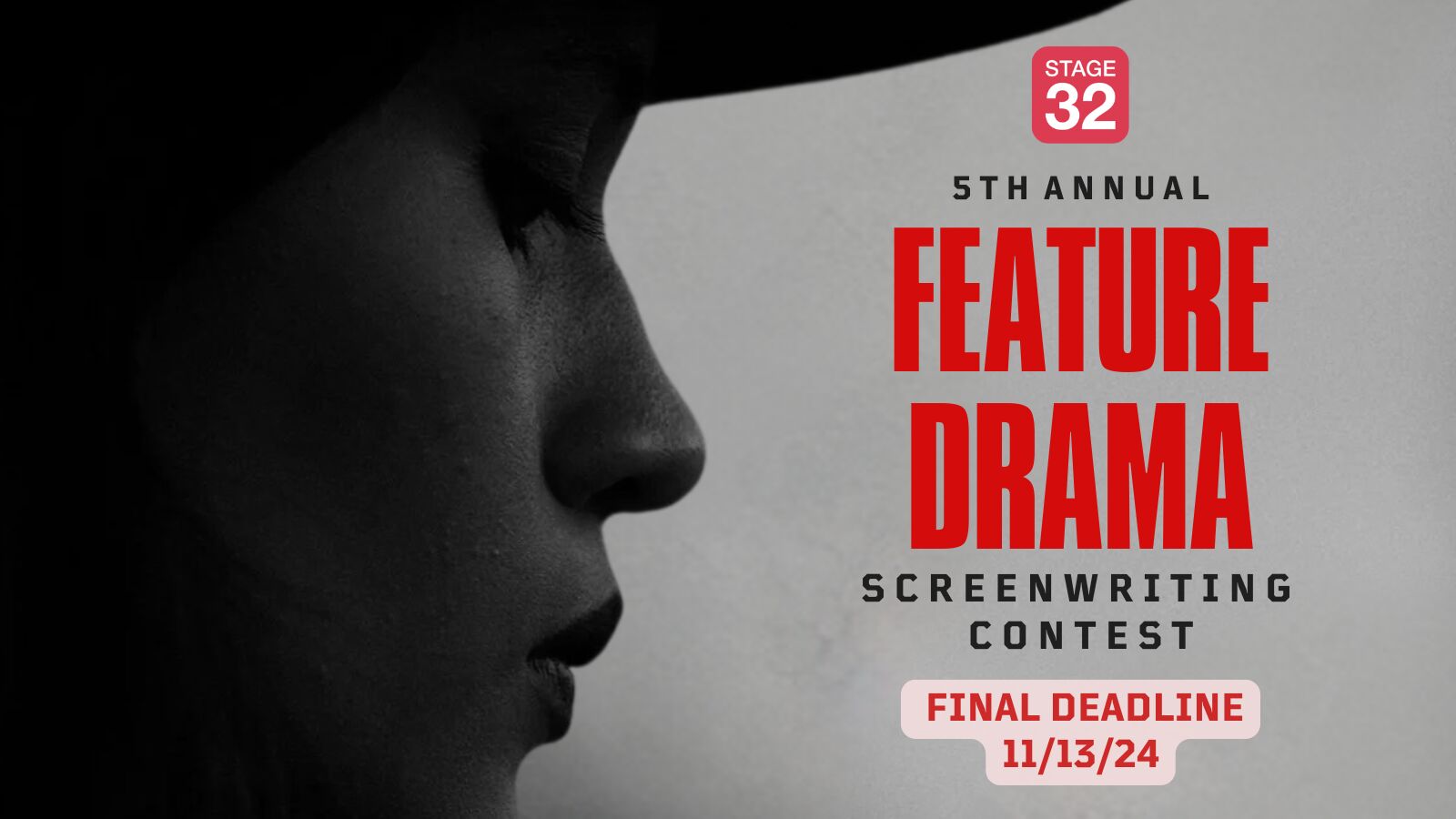Hollywood may seem like it's averse to change at times, but it's constantly evolving - would love to know what you all think of what Suzanne Daniels has to say here in regards to changing the development and pitching process :)
https://deadline.com/2023/09/tv-development-changes-susanne-daniels-colu...




5 people like this
She is spot on and I want to work with her.
6 people like this
In other words, treat those around you as you were taught in kindergarten, with kindness and respect. The world has a shortage of these qualities at the moment.
3 people like this
I've learned a lot through notes and which notes to take and which ones are filled with subjective arrogance and just a lazy mind. However, to make that distinction you must read them all.
6 people like this
For one who has yet to experience any of this, I hope and pray her words hit their marks!
4 people like this
Fantastic article Emily J . I would propose that what she suggests should be a baseline. But we humans are creatures of habit and we don't typically adapt to new behavior unless circumstances drive us to that. Thanks so much for sharing.
9 people like this
The problem is the majority of current & future Execs come from same backgrounds, same schools, same economic status. Just look at current crop of studio execs. They're the same group
4 people like this
Pitching etiquette. What a wonderful concept! Thank you for reminding our brethren that good manners are crucial, even in the movie biz!
5 people like this
I love the idea of this, but every pitch is not the same. some last 12 minutes, then others take 45 minutes to pitch. it's not an easy process to create a template for when there are so many varibles in play. Most execs do respect the creatives that are pitching, but a few here and there, only take pitches because they have to, not because they're actually "looking" for content.
5 people like this
Certainly a nice vision she has, Emily. My biggest takeaway is her third point, "The algorithm doesn't know everything." This is essentially AI without the trendy acronymn, though "Algo" might catch on. Algos are designed for efficiency not creativity, and relying on data doesn't account for the X factor where movies or shows find an huge audience. Do you think Jury Duty would've passed the algo sniff test?
5 people like this
Emily J I liked this:
In the words of the soulful Ava DuVernay, “Creativity is an energy. It’s a precious energy, and it’s something to be protected.”
And all of that said in the context of the abuse of creatives and how the old is the enemy of the new. I suppose that is something that has been regurgitated many times during the strike and that ‘safety first’ mentality of the Execs, who only seem to want more of the same old (IP) and not establish any new IP for future audiences.
Whilst I see what she’s hoping for as a positive move, what we need are more Execs with her mentality who will champion the new creatives who need to be heard.
Yes creativity needs to be protected, but it also needs to be set free, to make its own successes and failures.
5 people like this
Dan MaxXx I fully agree. The call for "new blood" doesn't seem to extend outside of old bloodlines. The industry stacked with people who've never worked a job before 23 & never had to understand "need" and never had to be creative in order to survive. The narratives are immature and cannot identify with the majority of the population.
4 people like this
Definitely a worthy vision to pursue,
5 people like this
Spot on Geoff Hall. It is definitely challenging to breakthrough with new work. Not impossible, but challenging. As RB once related one of the issues is that the Studios now answer to Wall Street. They are risk averse. Why invest in a new voice when you can invest in existing IP with a proven audience? that's their attitude. More and more it seems writers need to look to ways to take a two pronged attack. Definitely keep pitching, but have a plan to independently get your work produced.
7 people like this
I like Susanne Daniels’ strategy, @Emily J. I’m glad she pointed out that algorithm doesn’t know everything. Sometimes that’s the main thing that producers, companies, etc. focus on, but sometimes it causes them to miss out on great projects.
Susanne mentioned less interference. Sometimes too many notes can damage a project. I’ve been there with producers and directors. The notes took the projects into completely different directions than originally planned, and it wasn’t a good thing. Sometimes I was able to convince the producers and directors that the changes would damage the projects/not work for the projects.
2 people like this
Maurice Vaughan, you seem incredibly diplomatic. Have you thought about producing? Hollywood needs people like you.
3 people like this
Thanks, Robin Gregory. I tried to produce two movies WAY back (a big-budget movie and a low-budget movie). I didn't know anything about producing movies, so it was overwhelming. I'll rather just write scripts now.
2 people like this
I certainly understand, Maurice Vaughan. It takes a certain kind of personality to juggle producing. Like you, I find writing to be enough of a challenge.
3 people like this
Writing is enough of a challenge, Robin Gregory. And trying to find new ways to pitch scripts. That's a challenge sometimes too. One thing I started doing is putting different posters together on one poster. That way I'm pitching four scripts at once.
1 person likes this
I read the attachment to Emily J's post in Screenwriting, and, as an author new to script writing, it opened my eyes to events I have yet to experience. And I must say the comments about how the scripts were basically disemboweled and forced into a proven formula that is tried and true and oh-so-over-and-done-with. I confess, it has rather discouraged me!
2 people like this
Don't be discouraged Marian Betts. Getting your work to the big screen or television is a collaborative process.
KANATA asks the question: What if Christopher Columbus never discovers the Americas in 1492, but instead, driven by a life-saving prophecy, a young, Indigenous woman discovers Europe? As an Indigenous person, I belong to the Tahltan and Tlingit peoples of northwest British Columbia, it's a question I've asked myself forever. How would our world look if Christopher Columbus never came here?
In the year 1492, people across KANATA are mysteriously dying. In the capital city of Tu Cho, Shaman search for answers, unable to stop the suffering. One Shaman, Ishkóh, sinks into a tree and listens to the mycelium root network and communicates with other Shaman across KANATA. He realizes what was prophesied years ago is happening now. Their blood has become too pure and must be renewed; The peoples of KANATA must cross the Big Water and find the Cloud People from whom they will collect DNA and restore their blood.
A reluctant 18-year-old leader, Yanna Tan, and her shape-shifting friend Kishi — who is secretly in love with her — and a crew of knowledge keepers, journey from the shores of KANATA and land in Spain. There, they find a strange and terrifying world, and a fight for their lives.
In a quest to become the next Pope, Cardinal Marinus sees the arrival of these mysterious newcomers as his path to power. He declares them to be demons and claims that he alone has the power to eradicate them.
Except these Indigenous heroes are on their own quest to find the Cloud People and to save the Red Race of KANATA. But who and where are the Cloud People? And why is the black argillite that Yanna Tan’s ship is made from important to a mysterious rock formation in a faraway land?
Back in Tu Cho, there is more death and instability. Ishkóh communicates remotely with Yanna Tan, aiding her quest, while also working to quell a populist rebellion fuelled by Ashini, his former student and lover. Ashini and her followers believe in neither the prophecy nor the land's consensus government. Instead, they extol the freedom of the individual. Ishkóh must struggle to find peace and hold on to power in a land threatened with extinction as he waits for Yanna Tan to return with a cure for the continent.
1 person likes this
Cool poster, Maurice Vaughan!
2 people like this
Beautiful posters, Maurice Vaughan and Gordon Loverin. Also, Gordon, KANATA sounds fantastic. Love the mystical and historic elements, and seeing Christopher Columbus outdone by a woman.
1 person likes this
Thanks, Ty Strange and Robin Gregory. I saw something similar to my four-poster picture on Twitter (X), but it has horizontal pictures. I think that's a great way to pitch multiple scripts at once too, and you can fit more scripts on the horizontal one.
4 people like this
Not as familiar with pitching in this context. I am pitching my radio show to investors. It's a hard audience. I need to be clear, concise. I get about thirty seconds to get the person's attention. Then, I have to be able to keep it.
The comments about how notes can fundamentally change the story bother me. Making the story better by adding a line or changing a word so the dialog flows more smoothly? Sure. Changing the fundamentals of the show to make it match something else that was successful is a question I have considered. I'd not want that to happen. The fundamentals are what the show is based on. Early on, a casual reader suggested I needed to add corruption and heat to my story. I said an emphatic no. That's fundamentally not what the story is about. It would be a bit like sending Chucky and Freddy out to greet the kids on Main Street USA.
2 people like this
All her 3 points are so true!
4 people like this
I loved reading this Emily. Thank you for sharing.
2 people like this
Excellent.
1 person likes this
Martin Reese investing in existing IP seems to invoke the law of diminishing returns. I wonder if that’s true, or a fiction in my mind. I think I’ll do a little research on that.